Drafts by Vasily Nemechkin
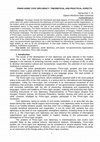
The paper reveals the theoretical and legal aspects of Finno-Ugric civic diplomacy, under which t... more The paper reveals the theoretical and legal aspects of Finno-Ugric civic diplomacy, under which the author understands the diplomacy of Finno-Ugric non-governmental organizations. In the modern world, non-governmental organizations hold consultations and conduct negotiations in the international arena. In this regard, the role of civil society institutions in matters of international cooperation is increasing. The author examines the activities of the main actors in the sphere of civic diplomacy among the Finno-Ugric non-governmental organizations of Hungary, Finland, Estonia and the Russian Federation. The forms of cooperation are revealed between the institutions of civil society of Finno-Ugric countries in such spheres as education, science, culture, branding and tourism. In the paper the author examines the forms of participation of Finno-Ugric non-governmental organizations in the work of the United Nations mechanisms for supporting the rights of indigenous peoples. Finno-Ugric non-governmental organizations lay a solid foundation for international cooperation of citizens, legal entities as well as for the development of interstate relations of the Finno-Ugric countries (bilateral, multilateral cooperation).
Papers by Vasily Nemechkin
International Expert Group Meeting “Truth, transitional justice and reconciliation processes” 15 to 17 November 2022, Santiago, Chile Economic Commission for Latin America and the Caribbean (ECLAC) Headquarters, 2023
Truth, reconciliation and restoration processes and barriers to the effective participation of in... more Truth, reconciliation and restoration processes and barriers to the effective participation of indigenous peoples in these processes at the national level in the Eastern Europe, Russian Federation, Central Asia and Transcaucasia
Bulletin of Science and Practice, 2021
The protection of national rights remains a weak link in the entire system of human rights protec... more The protection of national rights remains a weak link in the entire system of human rights protection. It is no coincidence that after the Second World War, the principle of respect for human rights, including the rights of national minorities and indigenous minorities, became one of the most important comprehensive norms of international law. In this regard, it seems important to identify the specifics of state regulation of the observance of the rights of national minorities and indigenous peoples.

Finno-Ugric World
Introduction. The main objective of this article is to study the historical and legal aspects of ... more Introduction. The main objective of this article is to study the historical and legal aspects of the establishment of the International Decade of Indigenous Languages (2022–2032), proclaimed by the United Nations General Assembly, as well as to analyze international instruments, establishing the legal framework and mechanisms for the implementation of the Decade. Materials and Methods. The research methods are based on a system approach. The general research (system, analysis and synthesis) and subject specific methods of knowledge (historical, formal-legal) were applied during the research. The main international legal instruments for the International Decade of Indigenous Languages were used. This article explored a wide range of regulatory sources. Results and Discussion. The article considers the historical stages of formation and development of the International Decade of Indigenous Languages, gives an overview of international legal documents and normative legal acts of the Ru...

Introduction. The main objective of this article is to study the historical and legal aspects of ... more Introduction. The main objective of this article is to study the historical and legal aspects of the formation and development of international standards in the field of linguistic rights of indigenous peoples. This topic is particularly relevant in connection with the proclamation of the period 2022–2032 International Decade of Indigenous Languages by UN General Assembly. Materials and Methods. The research methodology is based on a systematic approach that incorporates the historical, formal-legal, system-structural methods of scientific knowledge. The material was provided by the main international legal documents in the field of the linguistic rights of indigenous peoples, research by Russian and international authors on the legal status of indigenous peoples, and the protection of their linguistic rights in particular. Results and Discussion. Based on the analysis of international legal acts, the following can be distinguished among the linguistic rights of indigenous peoples: ...

Introduction. The main objective of this article is to study the historical and legal aspects of ... more Introduction. The main objective of this article is to study the historical and legal aspects of the formation and development of international standards in the field of linguistic rights of indigenous peoples. This topic is particularly relevant in connection with the proclamation of the period 2022–2032 International Decade of Indigenous Languages by UN General Assembly.
Materials and Methods. The research methodology is based on a systematic approach that incorporates the historical, formal-legal, system-structural methods of scientific knowledge. The material was provided by the main international legal documents in the field of the linguistic rights of indigenous peoples, research by Russian and international authors on the legal status of indigenous peoples, and the protection of their linguistic rights in particular.
Results and Discussion. Based on the analysis of international legal acts, the following can be distinguished among the linguistic rights of indigenous peoples: the right to preserve and use native languages in private and publicly; the right to education in the mother tongue; the right to create and have access to the media in their native languages; the right to recognize indigenous languages in constitutions and national laws; the right to a life free of linguistic discrimination and other rights. The article also discusses the main UN mechanisms and tools in the field of ensuring and protecting the rights of indigenous peoples. The protection of the linguistic rights of indigenous peoples is currently carried out by numerous specialized agencies such as UNESCO, United Nations Permanent Forum on Indigenous Issues, UN Expert Mechanism on the Rights of Indigenous Peoples, the Special Rapporteur on the rights of indigenous peoples and etc. An important mechanism for promoting the theme of languages of indigenous peoples, the unification of partners and resources for joint action around the world was the proclamation by the UN General Assembly of the International Year of Indigenous Languages (2019) and the International Decade of Indigenous Languages (2022–2032).
Conclusion. At the level of the international community, it formed a serious understanding of the need to preserve and develop languages, the realization of the linguistic rights of indigenous peoples, which will be facilitated by the International Decade of Indigenous Languages.

The article reveals the theoretical and legal aspects of Finno-Ugric civic diplomacy, under which... more The article reveals the theoretical and legal aspects of Finno-Ugric civic diplomacy, under which the author
understands the diplomacy of Finno-Ugric NGOs. The author examines the activities of the main actors in the sphere of
public diplomacy among the Finno-Ugric NGOs of Hungary, Finland, Estonia, and the Russian Federation. The article
considers the forms of cooperation between the institutions of civil society of the Finno-Ugric countries in such spheres
as education, science, culture, branding, and tourism. The author also studies the activities of Finno-Ugric NGOs in the
framework of United Nations mechanisms on the rights of indigenous peoples.
Materials and Methods.The methodology of the research is based on a systematic approach that incorporates
structural, formal, legal, historical and other methods of scientific cognition. The material was the research of international and
Russian authors devoted to theoretical and practical aspects of civil (public) diplomacy, “soft power”, “people's diplomacy”.
Examining Finno-Ugric aspect of civic diplomacy directly, the author examined the works of Finno-Ugric scholars on the
Finno-Ugric peoples.
Results and Discussion.In the modern world, civic organizations are more and more often are the initiators and
conductors of public dialogue in the international arena. In this regard, the role of civil society institutions in matters of
international cooperation is increasing at times. Given the diversity of positions, the author gives the following definition of
public diplomacy: it is the informal activity of individuals and legal entities (NGOs) aimed at developing cooperation between
civil society institutions, peoples and states. Accordingly, Finno-Ugric civic diplomacy is the activity of individuals and legal
entities (NGOs) aimed at developing cooperation between Finno-Ugric NGOs, peoples and states.
Conclusion.The author comes to the conclusion that Finno-Ugric non-governmental organizations lay a solid foundation
for international cooperation of citizens, legal entities, and the development of inter-state relations of the Finno-Ugric
countries (bilateral, multilateral cooperation).
The article explores the main mechanisms and instruments of the United Nations in the field of pr... more The article explores the main mechanisms and instruments of the United Nations in the field of protection of the rights of indigenous peoples.
Conference Presentations by Vasily Nemechkin
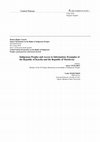
Alexey Tsykarev, Vasily Nemechkin, 2018
1. The issue of the indigenous peoples’ access to information is relevant to the traditional are... more 1. The issue of the indigenous peoples’ access to information is relevant to the traditional areas of dense residence of indigenous peoples. It was highlighted many times during such large fora as the World Congresses of the Finno-Ugric Peoples.
2. The issue of access to information includes the following aspects: a) receiving information about the rights of indigenous peoples, ways of their realization, and state services; b) access to information in native languages of indigenous peoples; c) information channe ls; d)
transparency of state bodies and state-funded organizations; e) role of media in distribution of information about the rights of indigenous peoples. The institutions of indigenous peoples seek for more systematic and parity communication with public authorities based on the principles of transparency and access to necessary information. This study allowed defining the relevant current trends in the Republic of Karelia as well as in the Republic of Mordovia, one more region of the Finno-Ugric peoples’ residence, to make it possible to compare. The
study will facilitate discussions of the recommendations and best practices that can be used for improving the situation.
3. The findings of the study are planned to be used in the activity of non-governmental organizations and other stakeholders. This is a pilot study and it can be applied to other regions of indigenous peoples’ residence. The results of the project will be presented to the
expert community at international fora such as the UN Expert Mechanism on the Rights of Indigenous Peoples in Geneva.
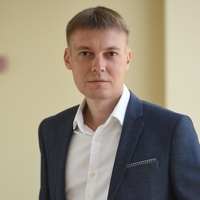




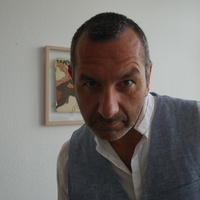
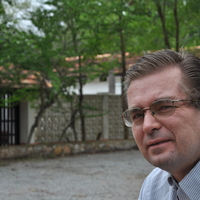



Uploads
Drafts by Vasily Nemechkin
Papers by Vasily Nemechkin
Materials and Methods. The research methodology is based on a systematic approach that incorporates the historical, formal-legal, system-structural methods of scientific knowledge. The material was provided by the main international legal documents in the field of the linguistic rights of indigenous peoples, research by Russian and international authors on the legal status of indigenous peoples, and the protection of their linguistic rights in particular.
Results and Discussion. Based on the analysis of international legal acts, the following can be distinguished among the linguistic rights of indigenous peoples: the right to preserve and use native languages in private and publicly; the right to education in the mother tongue; the right to create and have access to the media in their native languages; the right to recognize indigenous languages in constitutions and national laws; the right to a life free of linguistic discrimination and other rights. The article also discusses the main UN mechanisms and tools in the field of ensuring and protecting the rights of indigenous peoples. The protection of the linguistic rights of indigenous peoples is currently carried out by numerous specialized agencies such as UNESCO, United Nations Permanent Forum on Indigenous Issues, UN Expert Mechanism on the Rights of Indigenous Peoples, the Special Rapporteur on the rights of indigenous peoples and etc. An important mechanism for promoting the theme of languages of indigenous peoples, the unification of partners and resources for joint action around the world was the proclamation by the UN General Assembly of the International Year of Indigenous Languages (2019) and the International Decade of Indigenous Languages (2022–2032).
Conclusion. At the level of the international community, it formed a serious understanding of the need to preserve and develop languages, the realization of the linguistic rights of indigenous peoples, which will be facilitated by the International Decade of Indigenous Languages.
understands the diplomacy of Finno-Ugric NGOs. The author examines the activities of the main actors in the sphere of
public diplomacy among the Finno-Ugric NGOs of Hungary, Finland, Estonia, and the Russian Federation. The article
considers the forms of cooperation between the institutions of civil society of the Finno-Ugric countries in such spheres
as education, science, culture, branding, and tourism. The author also studies the activities of Finno-Ugric NGOs in the
framework of United Nations mechanisms on the rights of indigenous peoples.
Materials and Methods.The methodology of the research is based on a systematic approach that incorporates
structural, formal, legal, historical and other methods of scientific cognition. The material was the research of international and
Russian authors devoted to theoretical and practical aspects of civil (public) diplomacy, “soft power”, “people's diplomacy”.
Examining Finno-Ugric aspect of civic diplomacy directly, the author examined the works of Finno-Ugric scholars on the
Finno-Ugric peoples.
Results and Discussion.In the modern world, civic organizations are more and more often are the initiators and
conductors of public dialogue in the international arena. In this regard, the role of civil society institutions in matters of
international cooperation is increasing at times. Given the diversity of positions, the author gives the following definition of
public diplomacy: it is the informal activity of individuals and legal entities (NGOs) aimed at developing cooperation between
civil society institutions, peoples and states. Accordingly, Finno-Ugric civic diplomacy is the activity of individuals and legal
entities (NGOs) aimed at developing cooperation between Finno-Ugric NGOs, peoples and states.
Conclusion.The author comes to the conclusion that Finno-Ugric non-governmental organizations lay a solid foundation
for international cooperation of citizens, legal entities, and the development of inter-state relations of the Finno-Ugric
countries (bilateral, multilateral cooperation).
Conference Presentations by Vasily Nemechkin
2. The issue of access to information includes the following aspects: a) receiving information about the rights of indigenous peoples, ways of their realization, and state services; b) access to information in native languages of indigenous peoples; c) information channe ls; d)
transparency of state bodies and state-funded organizations; e) role of media in distribution of information about the rights of indigenous peoples. The institutions of indigenous peoples seek for more systematic and parity communication with public authorities based on the principles of transparency and access to necessary information. This study allowed defining the relevant current trends in the Republic of Karelia as well as in the Republic of Mordovia, one more region of the Finno-Ugric peoples’ residence, to make it possible to compare. The
study will facilitate discussions of the recommendations and best practices that can be used for improving the situation.
3. The findings of the study are planned to be used in the activity of non-governmental organizations and other stakeholders. This is a pilot study and it can be applied to other regions of indigenous peoples’ residence. The results of the project will be presented to the
expert community at international fora such as the UN Expert Mechanism on the Rights of Indigenous Peoples in Geneva.
Materials and Methods. The research methodology is based on a systematic approach that incorporates the historical, formal-legal, system-structural methods of scientific knowledge. The material was provided by the main international legal documents in the field of the linguistic rights of indigenous peoples, research by Russian and international authors on the legal status of indigenous peoples, and the protection of their linguistic rights in particular.
Results and Discussion. Based on the analysis of international legal acts, the following can be distinguished among the linguistic rights of indigenous peoples: the right to preserve and use native languages in private and publicly; the right to education in the mother tongue; the right to create and have access to the media in their native languages; the right to recognize indigenous languages in constitutions and national laws; the right to a life free of linguistic discrimination and other rights. The article also discusses the main UN mechanisms and tools in the field of ensuring and protecting the rights of indigenous peoples. The protection of the linguistic rights of indigenous peoples is currently carried out by numerous specialized agencies such as UNESCO, United Nations Permanent Forum on Indigenous Issues, UN Expert Mechanism on the Rights of Indigenous Peoples, the Special Rapporteur on the rights of indigenous peoples and etc. An important mechanism for promoting the theme of languages of indigenous peoples, the unification of partners and resources for joint action around the world was the proclamation by the UN General Assembly of the International Year of Indigenous Languages (2019) and the International Decade of Indigenous Languages (2022–2032).
Conclusion. At the level of the international community, it formed a serious understanding of the need to preserve and develop languages, the realization of the linguistic rights of indigenous peoples, which will be facilitated by the International Decade of Indigenous Languages.
understands the diplomacy of Finno-Ugric NGOs. The author examines the activities of the main actors in the sphere of
public diplomacy among the Finno-Ugric NGOs of Hungary, Finland, Estonia, and the Russian Federation. The article
considers the forms of cooperation between the institutions of civil society of the Finno-Ugric countries in such spheres
as education, science, culture, branding, and tourism. The author also studies the activities of Finno-Ugric NGOs in the
framework of United Nations mechanisms on the rights of indigenous peoples.
Materials and Methods.The methodology of the research is based on a systematic approach that incorporates
structural, formal, legal, historical and other methods of scientific cognition. The material was the research of international and
Russian authors devoted to theoretical and practical aspects of civil (public) diplomacy, “soft power”, “people's diplomacy”.
Examining Finno-Ugric aspect of civic diplomacy directly, the author examined the works of Finno-Ugric scholars on the
Finno-Ugric peoples.
Results and Discussion.In the modern world, civic organizations are more and more often are the initiators and
conductors of public dialogue in the international arena. In this regard, the role of civil society institutions in matters of
international cooperation is increasing at times. Given the diversity of positions, the author gives the following definition of
public diplomacy: it is the informal activity of individuals and legal entities (NGOs) aimed at developing cooperation between
civil society institutions, peoples and states. Accordingly, Finno-Ugric civic diplomacy is the activity of individuals and legal
entities (NGOs) aimed at developing cooperation between Finno-Ugric NGOs, peoples and states.
Conclusion.The author comes to the conclusion that Finno-Ugric non-governmental organizations lay a solid foundation
for international cooperation of citizens, legal entities, and the development of inter-state relations of the Finno-Ugric
countries (bilateral, multilateral cooperation).
2. The issue of access to information includes the following aspects: a) receiving information about the rights of indigenous peoples, ways of their realization, and state services; b) access to information in native languages of indigenous peoples; c) information channe ls; d)
transparency of state bodies and state-funded organizations; e) role of media in distribution of information about the rights of indigenous peoples. The institutions of indigenous peoples seek for more systematic and parity communication with public authorities based on the principles of transparency and access to necessary information. This study allowed defining the relevant current trends in the Republic of Karelia as well as in the Republic of Mordovia, one more region of the Finno-Ugric peoples’ residence, to make it possible to compare. The
study will facilitate discussions of the recommendations and best practices that can be used for improving the situation.
3. The findings of the study are planned to be used in the activity of non-governmental organizations and other stakeholders. This is a pilot study and it can be applied to other regions of indigenous peoples’ residence. The results of the project will be presented to the
expert community at international fora such as the UN Expert Mechanism on the Rights of Indigenous Peoples in Geneva.